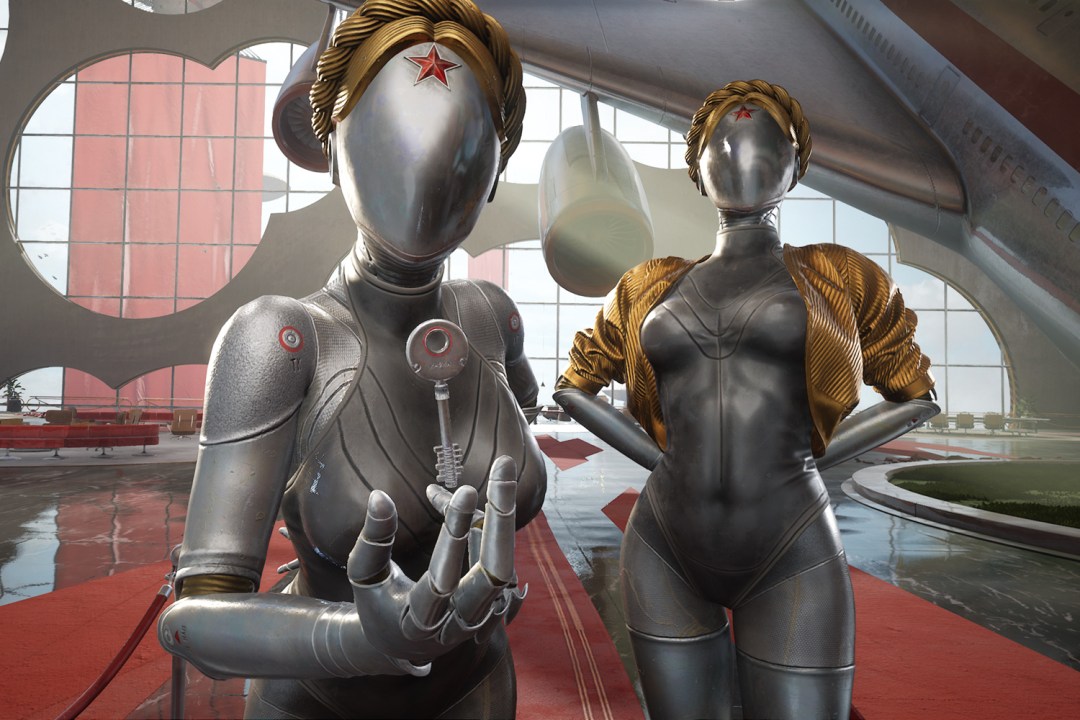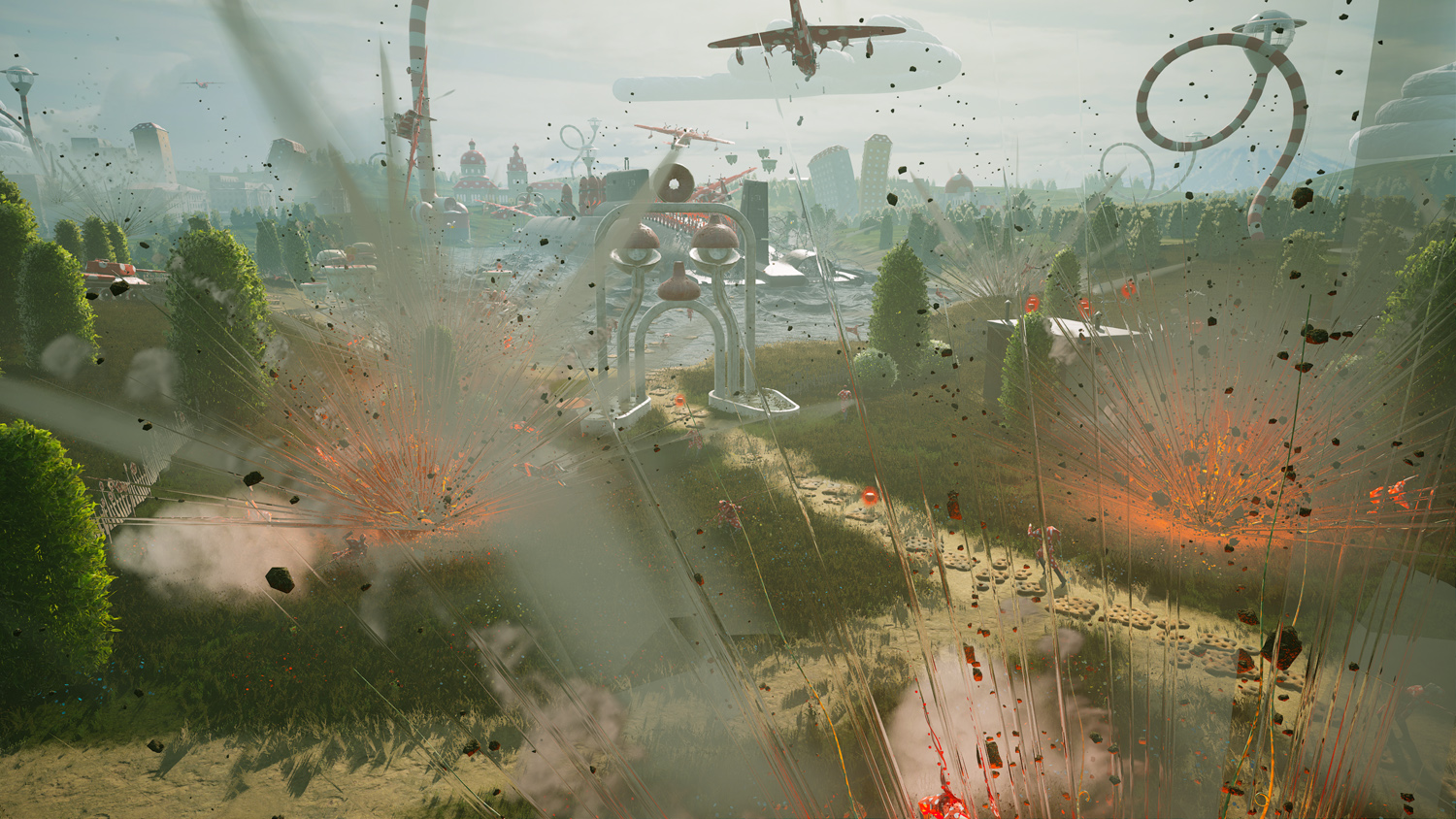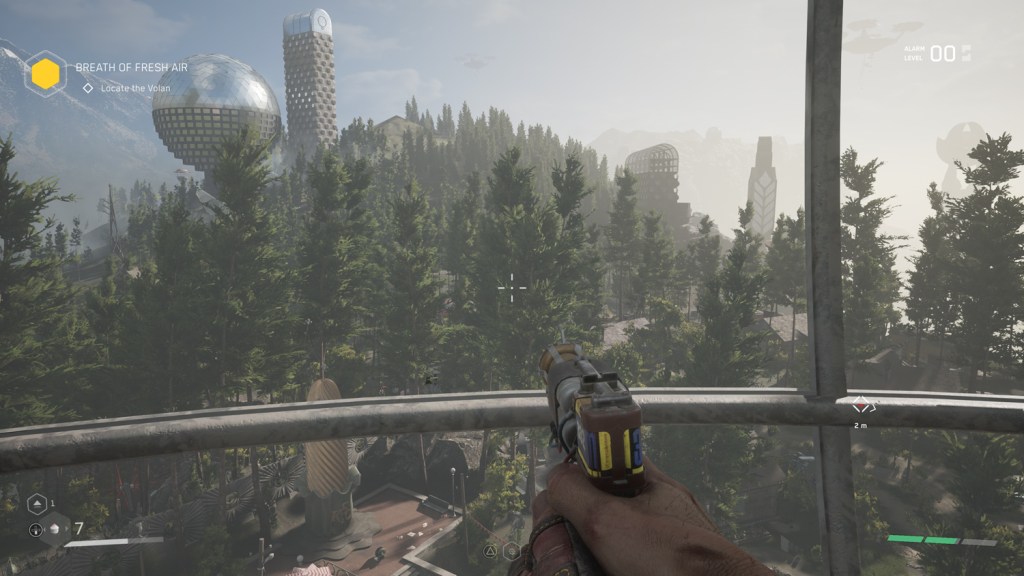Atomic Heart review: Soviet block
Alternative Soviet utopia turned nightmare

When first announced back in 2018, Atomic Heart captured interest with its blend of alt-1950s Soviet aesthetics, Bioshock-style narrative and FPS/RPG hybrid gameplay. A lot has changed since then in the real world. Developer Mundfish has tried to downplay its Russian roots following the invasion of Ukraine, moving to Cyprus and adding Ukranian language support to the game, but it’s hard to overlook the controversy: you’re effectively playing a KGB agent in a revisionist utopian version of the USSR, in a title released the same week as the anniversary of the incursion.
With that in mind, we’re here to assess whether Atomic Heart is worth your time and money (or indeed an install from Game Pass). It’s ultimately a game with big ideas, but is only content to explore them at a shallow level compared to the genre classics it pulls inspiration from.
Soviet kitsch


When the visuals look so good, it’s easy to get drawn into Atomic Heart’s utopian alternative history, where a technological breakthrough helped the Soviet Union establish itself as the great global superpower and robots now run all facets of manual labour. That said, it also feels like an uncritical celebration of Soviet-era propaganda, complete with sloganising posters and grand statues of Lenin.
It’s then particularly jarring that protagonist Agent P-3 sounds like an obnoxious American GI with a penchant for quippy one-liners. He’s sent in on cleanup duty after (naturally) something goes horribly wrong, sending all the robots on a murder frenzy. Switching to the native Russian audio gives a more immersive experience, but that means having to read frustratingly tiny subtitles. There’s also so damn much of it, particularly the back-and-forth between P-3 and the eccentric AI built into his power glove. It’s even more grating than Forspoken’s brainless banter – can we not bring back silent protagonists?
You also meet a very sweary granny fighting back against the robots with a rocket launcher, and an upgrade station voiced by a cringingly horny female AI. It aims for zany, but in the process Atomic Heart doesn’t have anything interesting to say about its setting.
Lock down


The environments are intelligently designed, often working as puzzles to navigate around as well as combat arenas – but there’s a lot more of them than we’d like. Even P-3 constantly moans about having to hack another locked door or backtracking on a fetch quest whenever something impedes his progress.
Early on you need to find a ticket to ride a train, which then hits a road block and you’re forced to find a second ticket to proceed, while the protagonist gets madder and madder, Sorry game designers, but having a character pointing out tedious and frustrating mechanics doesn’t make them any less tedious and frustrating.
There’s variety to its structure, which begins in very linear but arresting cinematic fashion, then moves between claustrophobic underground labyrinths and approaching an open world surface. There’s little to actually do above ground, beyond some optional test sites to secure, and driving the sole drivable vehicle to locations you’re not meant to visit yet usually throws up challenges you lack the tools or firepower to defeat anyway.
Robot wars


You might be expecting some fancy sci-fi blasters to help you take on the killer robot hordes, which are mostly creepy moustachioed androids but also come in other wacky forms that could have rolled straight from a higher budget episode of Robot Wars – yet basic melee weapons are as core to combat as guns.
The robots are a relentless bunch, capable of soaking up multiple hits to the head despite your best efforts, and ammo starts off scarce. You don’t unlock new weapons, but rather the blueprints to craft them – which then require materials, which seemed to take an age to gather. So instead you fall back on a clunky fire axe, which feels slow and imprecise once you get up close. Enemy attacks have visual clues that can be dodged with a button press, but it never feels slick – especially when you’re cornered in tight spaces.
Worse still is these encounters have a tendency to escalate. If you’re caught by one of the many security cameras, the alert level goes up once – but goes up again when you subdue any patrolling ‘bots. It’s all brilliantly soundtracked by Mick Gordon’s adrenalin-fuelled electric guitars, mixed with Soviet-era synths and folk songs, but the action accompanying it is the opposite of Doom in terms of pace and excitement.
You do come equipped with an AI-powered smart glove, which has handy functions like a scanner that shows enemies through walls and the ability to instantly hoover up resources from the environment or defeated foes. Earn enough unlocks and it can shock enemies, freeze them in place or throw them across the room with Telekinesis, but it just doesn’t flow in the same way as say, Bioshock or Dishonored.
Atomic Heart verdict

It may look like a glossy blockbuster FPS with a rich world to explore, but Atomic Heart ultimately rings rather hollow. It seems uninterested in expanding its own ideas in favour of superficial Soviet kitsch, framed through a deeply irritating protagonist and incomprehensible plot that’s more concerned with baffling twists and zany humour.
Players hoping for an engaging gameplay loop will find an equally disappointing blend of existing first-person shooter classics from over a decade ago, with little meaningful or new to contribute.
Stuff Says…
An intriguing alternative history concept that wastes its potential on a tonally baffling story and lacklustre combat
Good Stuff
Interesting concept and aesthetics
Mick Gordon’s score
Bad Stuff
Annoyingly talkative protagonist
So many tedious fetch quest puzzles
Clunky melee combat
